
I read all the entries to the photo prompt that I have been running here on the blog every week for over three and a half years. Many of them are short poems or flash fiction… none are longer than a short story and all are economical with words, given the constraint of time and space.
It has often struck me how varied and individual the responses are to the photo prompt. What I have seen as suggestive of horror has produced humour and romance. Where I have seen beauty and mystery, others have been prompted to write horror. It is interesting to see what comes to the surface of a writer’s mind, particularly when you have come to know them, at least a little. Like ink-blots, a psychologist could have a field day with the variety of the entries, including my own. They would probably come to the wrong conclusions though, as the writer’s mind is a strange place and a law unto itself. The gentlest home-maker can write the most horrifying tale, while the real-life action hero is just as likely to be writing romances as thrillers.

What is even more interesting though is that, with each piece that you read, no matter how different from your own perception of the image, you can see exactly why the writer has written their story. Your preconceptions are suspended for a moment and, although your own perception may not ultimately change, you see through other eyes than your own and with a different understanding of the world while you are reading the tale. You may disagree with the interpretation. You may see something you have missed and have a lightbulb moment. You may simply enjoy the story. Whatever the effects, the shift in perspective is a literary mile walked in the shoes of the writer.
Poetry can cover everything from humour to abstract concepts. Short stories have time to give a fair bit of detail and background. You get the chance to explore characters and situations with a little depth, building a sense of place and atmosphere, little by little. With flash fiction, though, you have few words with which to tell a tale and, while for a reader that may or may not seem like a good idea, for a writer practising brevity is always good discipline.

Wikipedia defines flash fiction as a “fictional work of extreme brevity, including the Six-Word Story, 140-character stories, also known as twitterature, the dribble (50 words), the drabble (100 words), and sudden fiction (750 words).” It goes on to cite the surprising antiquity of the technique as well as citing the idea that these very short pieces should imply a greater story behind the words. This last is, I think, what is so appealing about reading flash fiction when it is well done.
You get no more than a glimpse of a longer story, yet that glimpse tells you all that you need to know in order to construct that story for yourself. You have the main character, a hint of their personality and background, an idea of the problems they face and often, how they are going to solve them…or not. What amazes me is the mind’s ability to extract all these details from just a few meagre words and fill in the blanks, even as you are reading. By the time you have read, say, a hundred words, they have multiplied, in your imagination, into a novel.

I wonder how many books have been born from reading such snippets of stories? They are a rich source of inspiration and far too short to come close to plagiarism when their minimalist ideas are spun into a longer tale. Even stranger…just like the differing interpretations of an image, the backstories we each weave for these stories is uniquely our own. We lack the insight into the writer’s mind and may never know whether our own vision comes close to theirs.
I know that some of my own pieces of flash fiction have been read from vastly different points of view from the ones I intended. Does it mean I didn’t tell the story well enough to impose my own perspective or does it mean I left enough space for imagination to play and fill the gaps with your own fears and feelings? Does it matter?
For me, the job of a storyteller, no matter how long or short the tale, is to spark the imagination. As long as the reader is left thinking or feeling… the job is done.

All the images in this post have been used as photo prompts for the weekly #writephoto challenge, published on Thursdays. Do come along and join in!






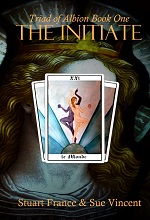



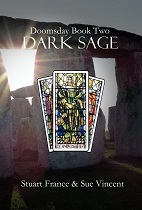








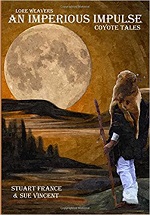


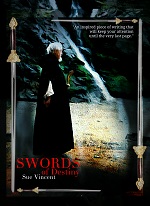



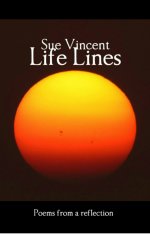




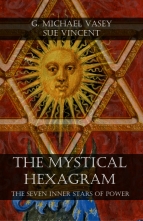

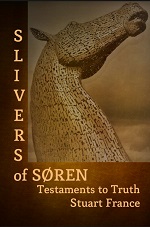


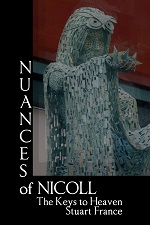


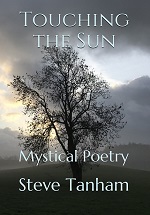

I see this wonderful variety too, Sue. I love prompts, they give my mind something to focus on which I find helpful. I remember my story for the golden swan clearly.
LikeLiked by 1 person
I us the same idea for the midnight haiku… I usually just choose a random photo from the files and write to that.
LikeLiked by 2 people
That is a good idea. I don’t have space in my head for poetry at the moment. It is too full of death and darkness.
LikeLiked by 1 person
That can go in poetry too…
LikeLiked by 1 person
I love the variety too Sue, and agree that some posts go off in a totally different direction that I ever imagined. It does fuel the mind, which is why I enjoy your prompts. Sometimes, I have more than one idea and write ‘shorts’ accordingly. Love Thursdays!
LikeLiked by 1 person
I think the mind just has to make up stories for images somehow 🙂
LikeLiked by 2 people
always!
LikeLike
🙂
LikeLiked by 1 person
I really enjoy the challenge of writing a story to accompany your splendid pictures. 😃
LikeLiked by 1 person
Thanks, Kyt. I love seeing what each picture sparks 🙂
LikeLiked by 1 person
I cannot remember what life was like before discovering your writing prompts, Sue, but so glad we did. Not only are they fun to do, we think it helps with all aspects of our writing, keeping those mental cogwheels turning!
LikeLike
Having constraints to transcend tends to do that 😉
LikeLiked by 1 person
Reblogged this on anita dawes and jaye marie.
LikeLike
Thanks for sharing, Jaye x
LikeLiked by 1 person
Interesting thoughts, Sue.
I think the best art suggests rather than defines. And detail can kill intrigue.
LikeLike
I agree, Kyt… There is too much ‘spoon feeding’ in mainstream media these days that leaves little room for either imagination or constructive thought.
LikeLiked by 1 person
I am also always amazed by the diversity of the replies to the #writephoto it certainly gives me food for thought. I love to read all the different takes on a theme.
This is definitely one of my favourite prompts. I do love to write them stream of consciousness, and with my on going story I never know what will happen until I see the prompt. Thank you Sue and everyone for inspiration.💜
LikeLike
Wonder what this week’s photo will call up? 😉 x
LikeLike
I wonder, I am shopping in Reading, not my favourite pastime. So looking forward to getting home and looking at the prompt 💜
LikeLike
I am not a shopper either… apart from old bookshops and antique stores 😉
LikeLike
Oh! Yes they are much more fun aren’t they, home now thank goodness. 💜
LikeLike
Much more 😀 x
LikeLike
Oh! Sue I do love this picture, I have had to dismiss my first thoughts as there is no way include a 6ft Rabbit wearing a jacket and a pocket watch into my saga ….Even if my latest character , introduced last week is called Alicia …how cool is that 😃, I might have to do two entries if that is allowed 💜
LikeLike
As many as you like, Willow 😀 xx
LikeLike
Lol 💜
LikeLiked by 1 person
Far too many years ago for me to admit to, I was teaching English. (It was a subsidiary subject I studied while doing my Teacher Training. My main was Science.) In the Creative Writing lessons (which weren’t called that in those days) I often used pictures to stimulate the children’s writing. I also used music (Holtz’ Planets Suite was always a good one) and even things like blowing soap bubbles. The results were sometimes amazing. Prompts are great to get you going when you’ve stalled.
LikeLike
They give you ideas…often going off completely at a tangent to the original. I think we almost have to tell ourselves stories when none are given.
LikeLike
I loved this post! Wise words.
LikeLike
Thanks, Pamela 🙂
LikeLike
Seeing everyone’s response is a huge part of doing these prompts.
LikeLike
I love that bit… and it sheds so much light on how people see the world too.
LikeLiked by 1 person
It does.
LikeLiked by 1 person
It really is so amazing and I have noticed it when I read the posts about the same Prompt word or photo. A great post!
LikeLike
Thanks, Sadje. It is a ‘Christmas morning’ moment, opening up the posts that come in 🙂
LikeLiked by 1 person
Great!
LikeLiked by 1 person
Without #writephoto, I would not have written pieces of flash fiction and short stories, Sue. Many of them have gone on to appear in my two books. I can’t imagine my writing world without the man-eating sheep, Gloria’s chest, Marcia Dumplin, Man-eating roses, Prudence Pebblebottom, a story-telling sperm and a host of other characters and situation.
The creative mind of a human is a fascinating piece of machinery that can see so many different stories and words in the same picture or image.
LikeLike
I said in another comment, Hugh, that opening all the entires for the prompt gives me a ‘Christmas morning’ feeling. The fact that several books and longer stories that have now been published were originally based upon responses to my photos is a fabulous ‘gift’ and one I never expected when the prompt began. So now I feel like a fairy godmother 🙂
LikeLiked by 1 person
In which case, this year, I shall name the fairy that goes on top of our Christmas tree, Sue. 🎄😀
LikeLike
I would be hnoured 😀
LikeLiked by 1 person
I enjoy doing the writing prompts. Sometimes, life gets in the way. But I have used several of your prompts to tell a continuing story.
I couldn’t agree more, we all see things from a different point of view, and I love seeing through the eyes, and the minds, of others.
LikeLike
I know, Michele… it isn’t always easy to find the right moment.
LikeLiked by 1 person
I like that I not only see what I see, but get to see through others’ eyes. Each day brings new perspectives. Thanks Sue for all your hard work (and I do know how much work it is…) (K)
LikeLike
So do I, Kerfe. It is a good lesson in remembering thatnone of us are the only ones with eyes…or opinions, or vision.
LikeLiked by 1 person
So true Sue, a psychiatrist may have a hard time figuring out a writer’s mind, lol. I think a written response to a prompt or image comes from what is lurking at the back of a writer’s mind in the moment when they join in the prompt, especially poetry, which I feel comes from the depths of the soul. I know it does for me. 🙂 ❤
LikeLike
It is surprising the connections we can make between words and images… ❤
LikeLiked by 1 person
It’s like a certain smell that’s familiar to one and means nothing to another. We are all unique ❤
LikeLike
Smells are perhaps the most evocative of all 🙂
LikeLiked by 1 person
True for me. 😉
LikeLiked by 1 person
Me too 🙂
LikeLiked by 1 person
I love when you think out loud like this, Sue. Variety is the spice of life.
LikeLike
I am sure Sally would approve of that comment too, Jennie 😉
LikeLiked by 1 person
I think she would! 🙂
LikeLike
🙂
LikeLiked by 1 person